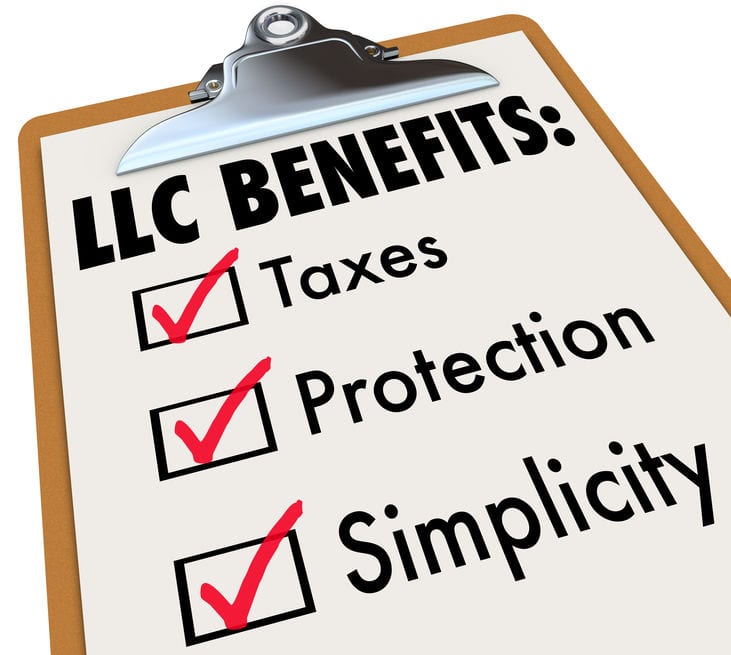Brian Hall - March 26, 2020 - Business Law, Entity Formation

The limited liability company, or “LLC,” provides an easy to set up, highly flexible organization structure with many of the perks of other business entities. Like most other business entity types, owners of an LLC (called “members”) only risk what they put into the business. This means that your personal assets are not vulnerable if business slows down.
The most important characteristics of the LLC include:
LLCs share two important characteristics with Corporations. First, it’s straightforward to provide equity to employees (as compensation) or investors (as consideration for their investment). Young companies need to be especially creative when it comes to compensation. Salary and benefits require money that is likely tight. But equity in the company provides something of value to your employee without requiring cash in hand. In addition, it gives the employee some skin in the game—an additional reason to want to do their best work for the company. After all, the better the company does, the more valuable their portion of it becomes!
There is a small downside to LLC equity compensation. People more readily understand what you mean when you say they’re getting “200 shares” of the company than “a 1.3% ownership interest” in the company. So, if you want your company to be an LLC, be sure you know how to pitch equity compensation to your prospective new talent.
Investors, too, will want something in return for the capital and other value they provide. This always includes a portion of the ownership of the company. As an LLC, granting that ownership interest is straightforward and simple. All ownership interest is created equal, after all.
However, that simplicity also has a downside that investors—especially professional investors like venture capitalists, angels, and large companies—really care about. The only difference between Owner A and Owner B is how much of the company they own. Contrast this with a C-Corporation. C-Corporations can offer multiple classes of shares, tailored in various respects, which make them appealing to investors (more on that in our C-Corps article).
Because of this single-class ownership restriction, many investors refrain from investing into anything but a C-Corporation (though rare exceptions exist). As with any business decision, context matters! This challenge is only important if you plan to seek investment from such investors.
While we’re on the topic, though, it’s important to note that converting an LLC into a C-Corporation is not straightforward. The easiest way to do it is to simply form a new C-Corp and merge the LLC into it. Doing that, of course, means setting up an entirely new business, including all the bylaws that establish rights and responsibilities.
If you want to get the tax treatment of the LLC with the ease of becoming a C-Corp when needed, consider setting up an S-Corp.
Finally, the most notable unique characteristic of LLCs is their incredible flexibility. LLCs, relative to other business entity types, have relatively few legally mandated structural requirements. For example, an LLC can be managed directly by its members, or by a separate set of persons called “managers” who function like a Board of Directors. An LLC can specify proportions of profit and loss to each member independently of any member’s ownership stake. This is unlike a Corporation, where profit and loss must be proportional to the shareholder’s ownership in the company.
This flexibility raises important questions that will need to be settled at the outset and during important moments in the life of the company. It will take time and resources to explore, discuss, negotiate, and ultimately resolve many of those questions. As we know, in business, time is money—so while the flexibility of the LLC can be an asset in many ways, it comes with a very real cost.
As in any business decision, context is key. The attractiveness of the LLC will depend on your circumstances. Are you the sole owner, or one of several? Do you desire capital investments in exchange for equity? Are you ready to negotiate between your co-founders who gets what share of the profits, and who bears what share of the losses? What state will your company be organized in?
If you’re unsure, don’t be! Traverse Legal has extensive experience advising clients on the entity that’s right for their goals. Our expert attorneys can advise you on the legal and business considerations that matter both at the outset of your new business journey and those down the road. We can help set out the complete context so you can make the best decision for your business, with certainty.
This blog post contributed, in part, by Traverse Legal Virtual Law Clerk Eric O’Neill.